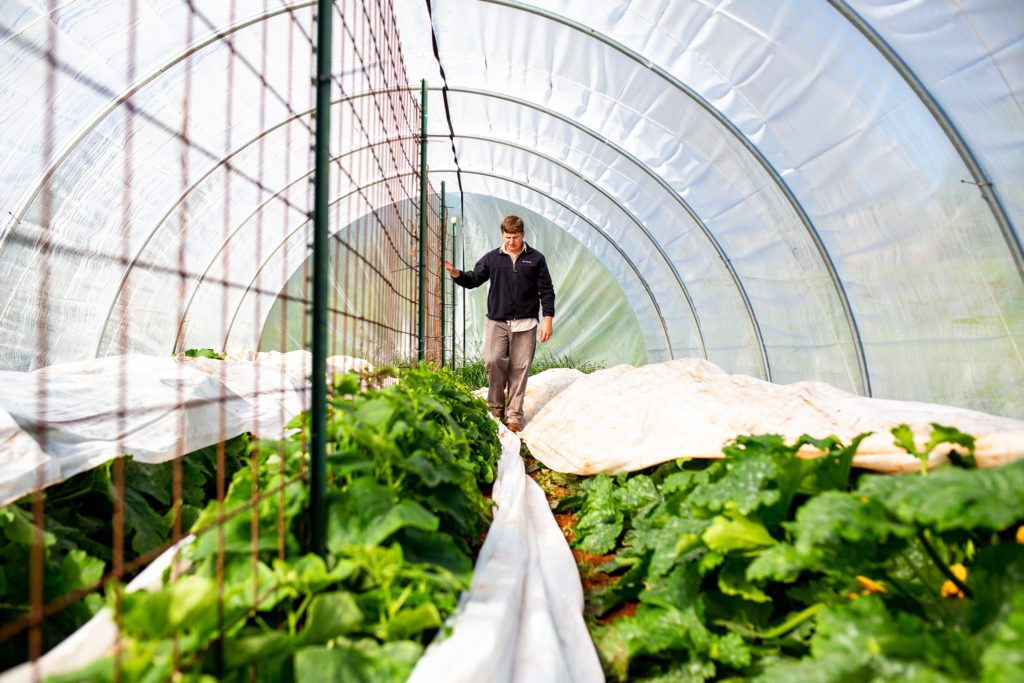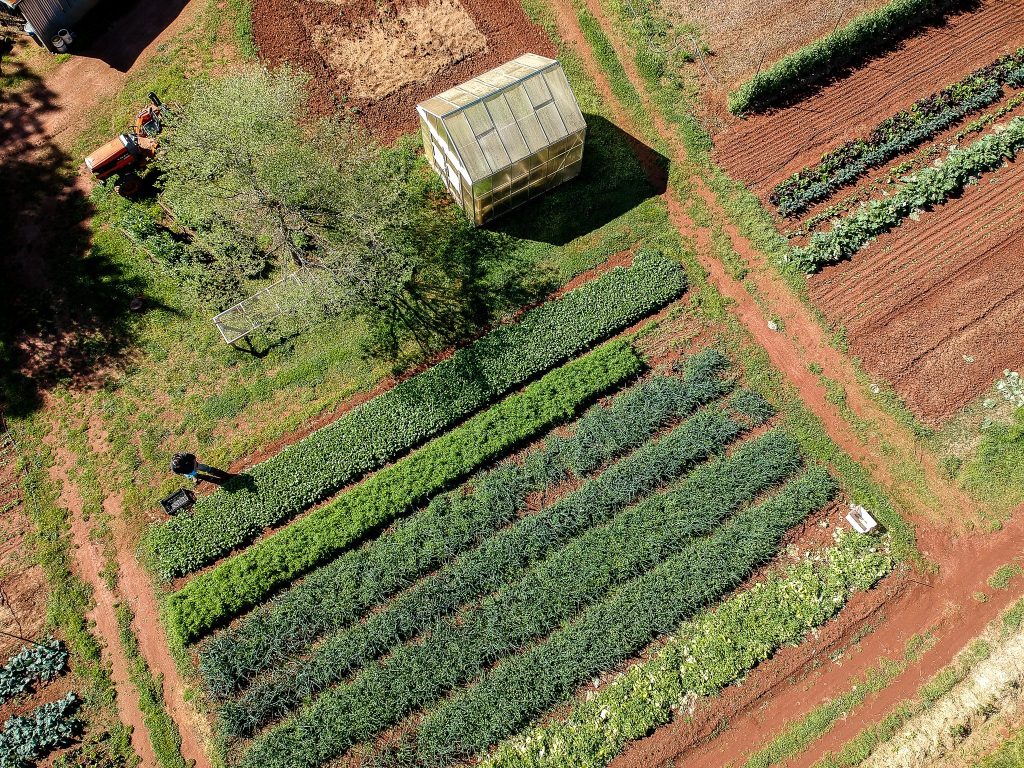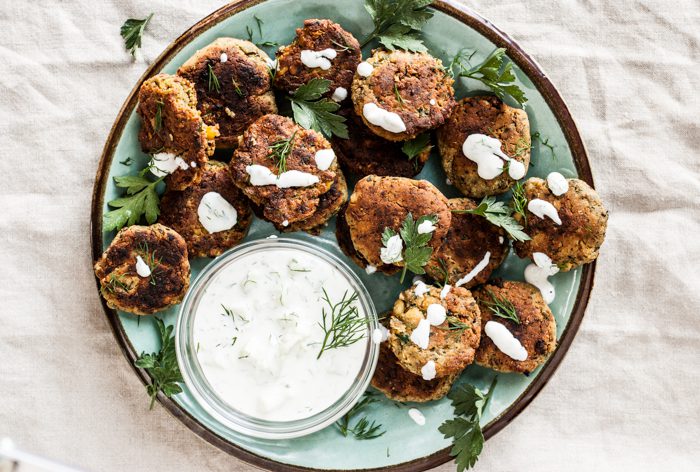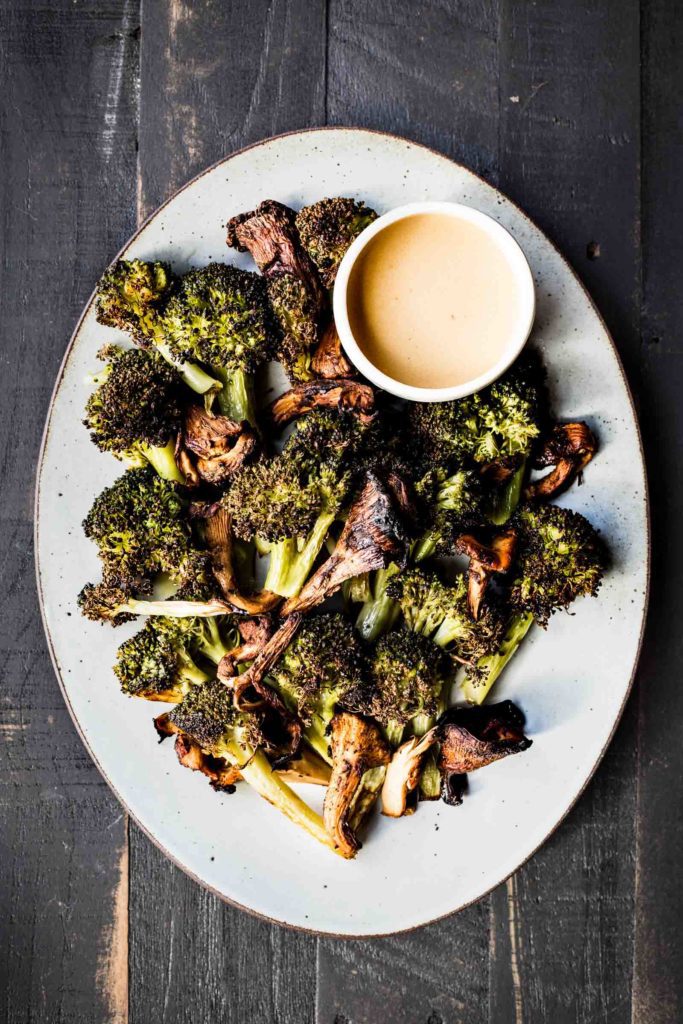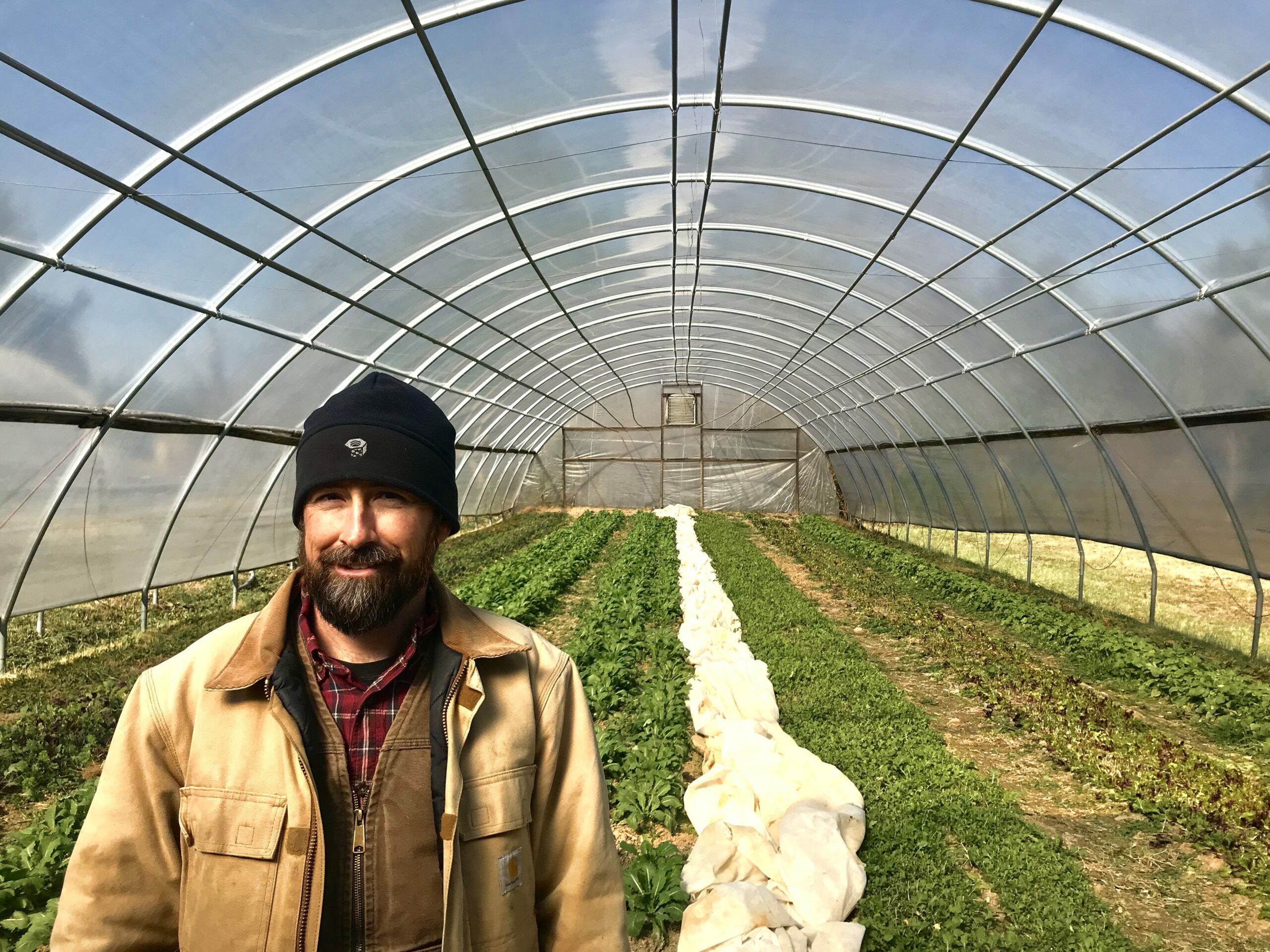Matt Fry has been fighting pests for most of his adult life. But at one point, this battle against bugs looked starkly different than it does today. The now 32-year-old hiking and outdoors aficionado graduated from The University of Georgia’s College of Forestry about a decade ago. After a couple years trapping wildlife in Alabama, Fry decided to come back to Georgia, where he started working as a sales manager for a pest control company in Alpharetta. He admitted that during that time, “I really saw the bad side of the industry and realized that was not what I wanted to do.” The damaging effects of synthetic pesticides on humans and the environment were hard to deny.
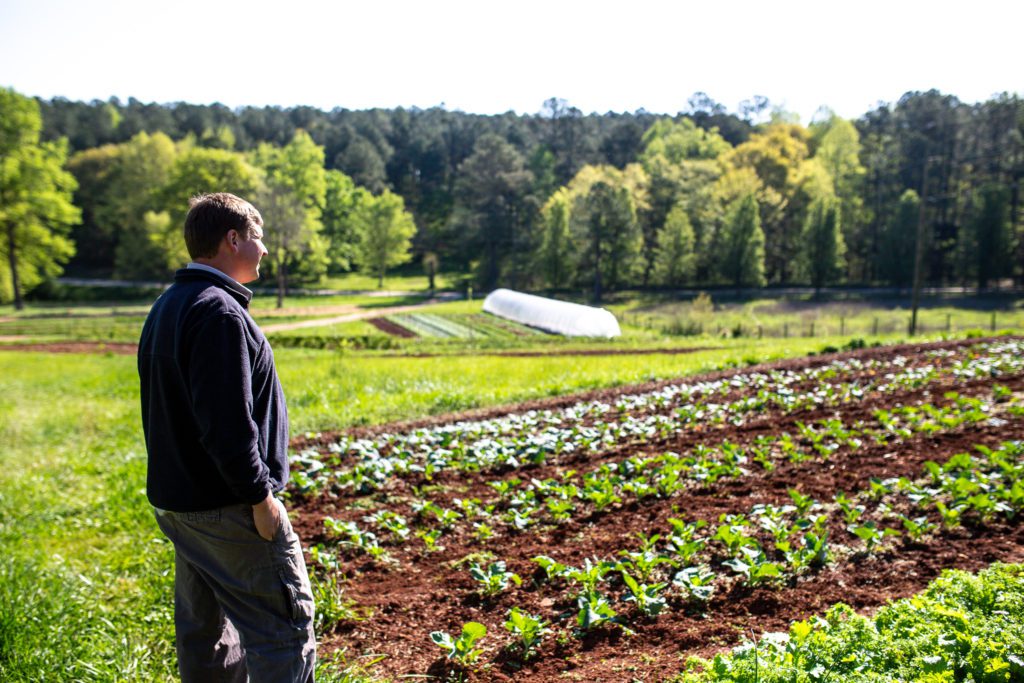
At the same time as he was discovering the dirty truth about chemical insecticides, Fry was also helping his parents expand their small organic farm in Bethlehem, Georgia. What started as a personal garden space eventually became four farmed acres with fruit trees, berry bushes, and fields of vegetables. In 2015, Matt decided to quit his pest control gig and joined the family business full time. “I really fell in love with farming and they really wanted to expand, so I started getting them contacts with restaurants and with Fresh Harvest and we’ve been growing ever since. Our sales have nearly doubled for three years in a row now,” he recalled.
Working with family can be a tough but rewarding endeavor. Matt mentioned that, “We get under each other’s skin all the time. It’s just part of it. But when stuff’s going well it builds our relationship. I think it’s really good for us to be out here working together.” Each member of the Fry family plays a unique and necessary role on the farm. Vicky, Matt’s mom, is the brains behind the whole operation, a natural researcher and knowledge base for all things agriculture, while his father Steve is more of the brawn, keeping all the physical processes rolling. As for Matt, he does “a little bit of everything” with a specific focus on sales and building relationships. An ecosystem in harmony.
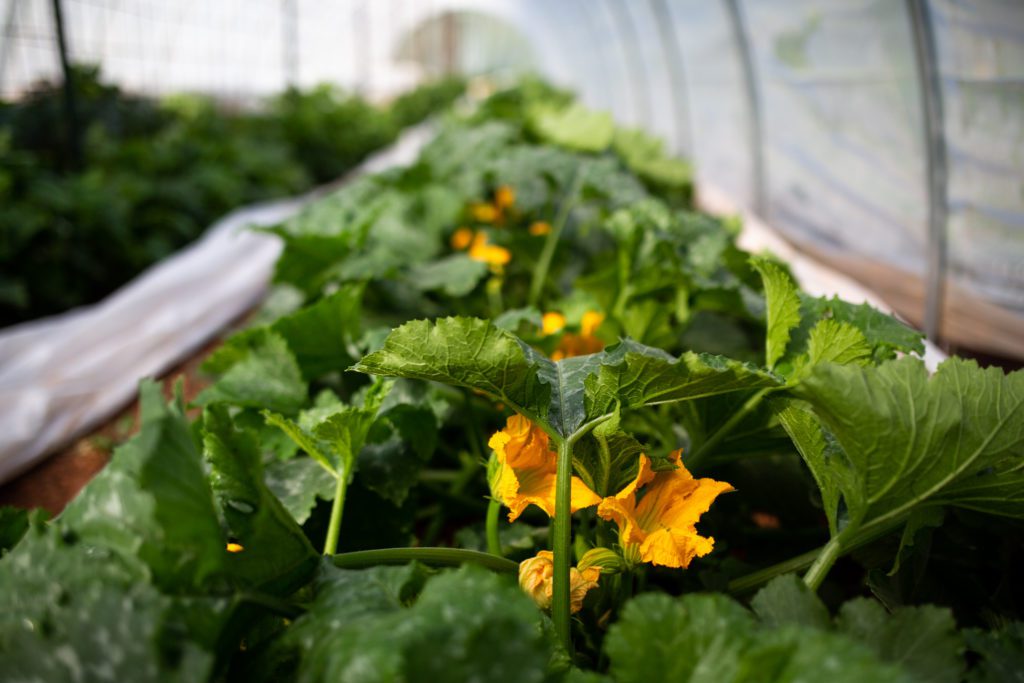
According to Matt, both of his parents have always been wary about using any kind of chemicals. Since making the career switch, he said, “It’s just made sense to us that if we’re going to grow food, we wouldn’t want to use chemicals that are designed to kill insects. These pesticides can actually be really harmful to us too. It just doesn’t make sense if we can choose between eating something with synthetic chemicals on it and something we know is completely clean of those things. Of course, we’ll choose the food without the chemicals!”
With an air of pride, Matt told me that, “[A]round the farm, we see spiders, salamanders and snakes, things that you wouldn’t see on a conventional farm because they use so many chemicals. It’s kind of cool to see the ecosystem being balanced out here. You’ve got good bugs, you’ve got bad bugs.” Having spent quite a few work days laboring alongside Matt in the fields of Fry Farm, it’s undeniable that all kinds of life flourishes here. Lying in a field at dusk, it’s hard to hear over the symphonic cacophony of the crickets, cicadas, and frogs.
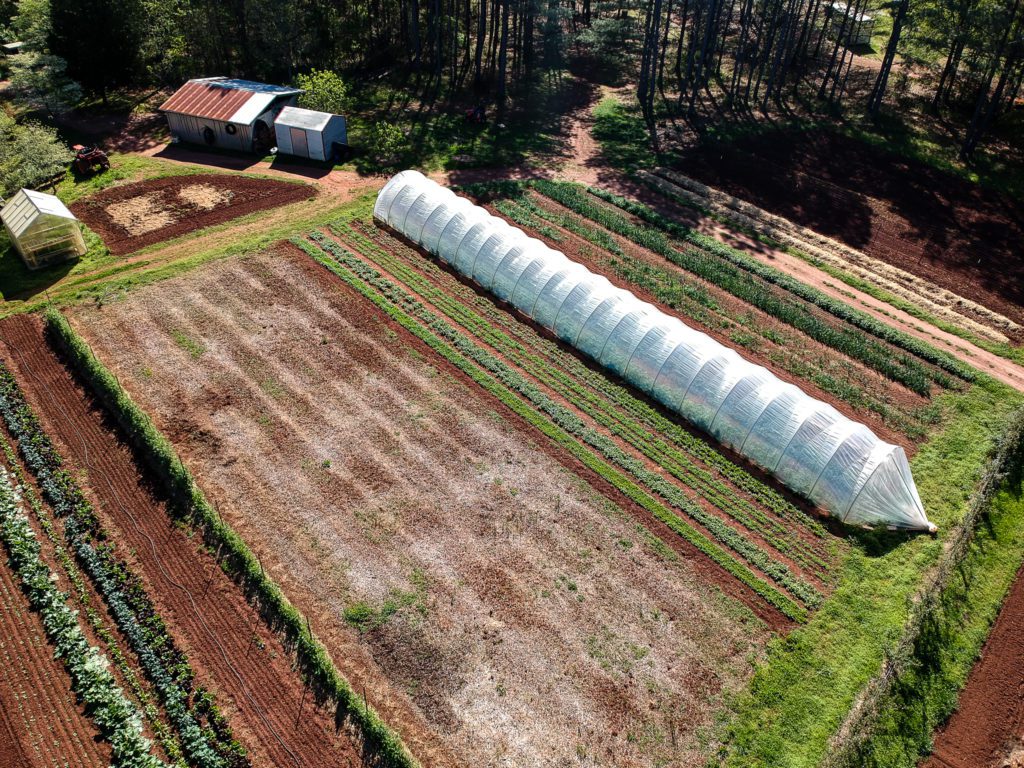
But did you know that organic farms use pesticides too? The difference all comes down to ingredients and application. The pesticides used on organic farms like Fry are derived from 100% natural sources, such as Pyrethrin, which is a concentrated extract from the Chrysanthemum flower. Farmers also use garlic oils, hot pepper oils, and neem oil. These derivatives are occasionally sprayed on plants as an insect repellent, breaking down almost immediately. Compare this with conventional farms, that inject lab-designed chemicals or bacteria into the DNA of plants to make them more resistant to insects, and in many cases, other synthetic insecticides. “The GMO crops in this country, like corn, often have bacteria called Bacillus thuringiensis(BT) injected directly into their DNA. That’s why corn-ear worms are non-existent in genetically modified corn. There is evidence that the BT can actually build up in our bodies when consumed at that level,” Matt warned.
Without these crop-altering chemicals, the summer season is especially tough on organic farmers in Georgia. “I’ll be honest, my least favorite season is summer. The dead of summer is tough with the bugs, the heat and the weeds,” Matt conceded. Each year he looks forward to the cooler weather in the fall when bugs are slowing down and his favorite crops, ginger and sunchokes, are ready to harvest. Until then, the Frys and their team are working hard to keep their produce looking amazing, even with nature’s obstacles. Fresh Harvest quality specialist, Talib Abu, makes it known to all that Fry Farm is the new standard for organic produce. If you come to FH, you might hear him passionately claim that, “Fry is my farm!”
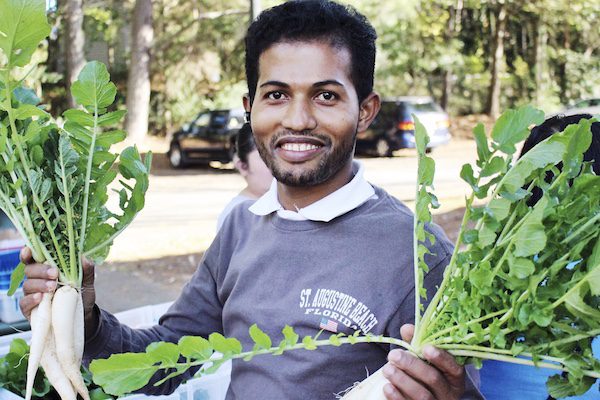
With partial thanks to Talib, but mostly to Matt and his family, we all benefit from the unmatched level of care that goes into the organic produce we put into our bodies. But we have to remember that the Frys don’t just grow food; they cultivate a healthy ecosystem, bugs and all. When we eat the fruit of their labor, we allow more of that cultivation to occur, permitting farmers like the Frys to expand their footprint of values to a greater amount of land and lives. It’s your thoughtful consumption that begets a healthier ecosystem for tomorrow, so let’s keep eatin’!
